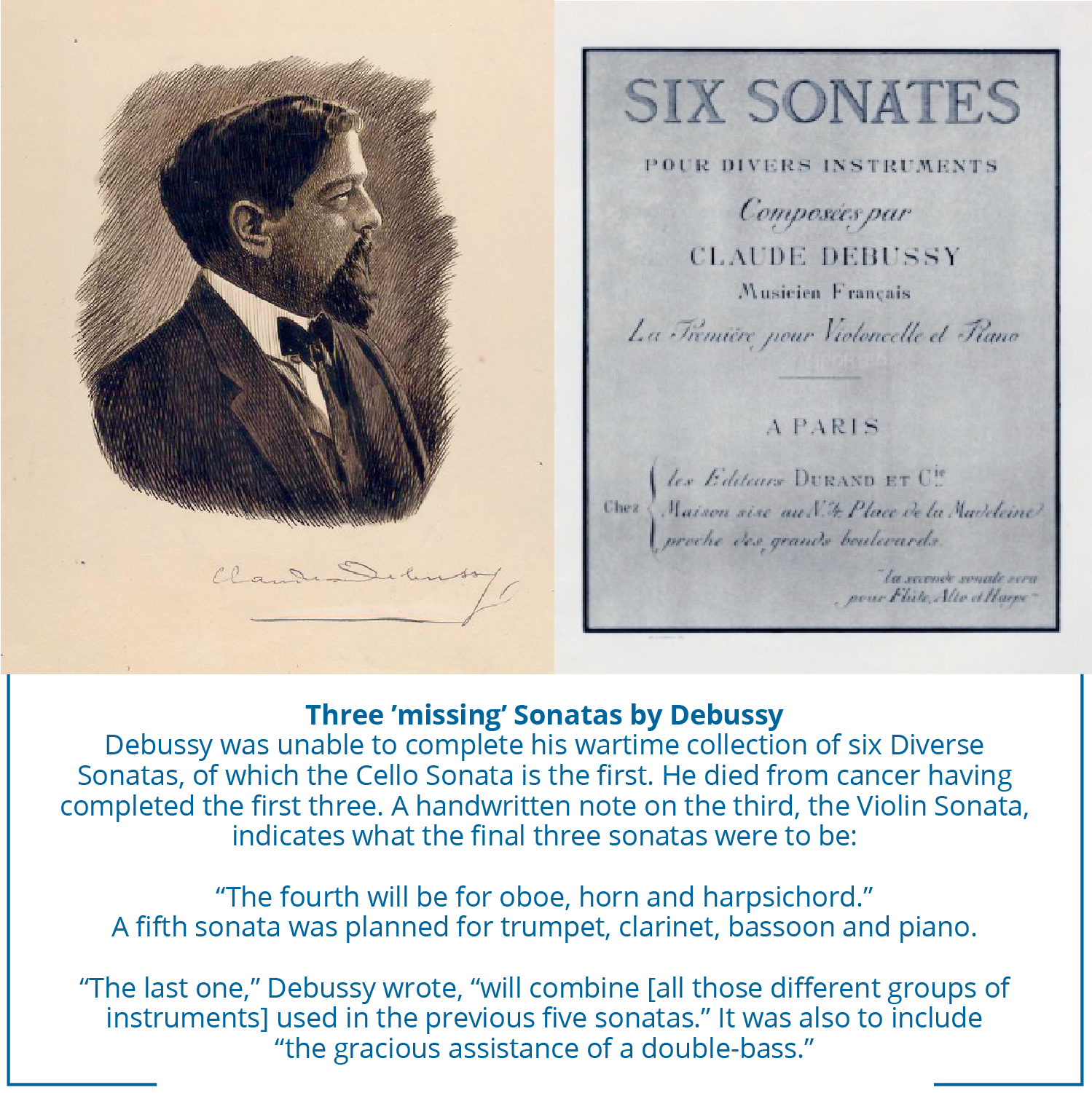SONATA FOR CELLO AND PIANO, L. 135
Claude Debussy
(b. St Germain-en-Laye, France, August 22, 1862; d. Paris, March 25, 1918)
Composed 1915; 12 minutes

The First World War was a miserable time for Debussy. He was in his early fifties, weakened by cancer and anxious about his son and other family members who were on the battlefield. For a year he was unable to compose. Then, in the summer of 1915, staying by the sea in Pourville, he began again to ’think in music’ and to compose ’like a madman’. “I have finished Douze Études for piano, a cello sonata, and another sonata for flute, viola and harp in the ancient, flexible mold with none of the grandiloquence of modern sonatas,” he wrote to a friend. “There are going to be six of them for different groups of instruments.”
All three completed sonatas consciously reject the Austro-German romanticism that Debussy found so distasteful during the war. In them, he discovered his heritage in the music of the French keyboard composers of the 18th century. To emphasize the connection with tradition, he signed the sonatas, with national pride, ’Claude Debussy, Musicien Français.’ The connection with the past is, perhaps, most apparent in the Prologue of the Cello Sonata, composed in a few days during late July and early August 1915. Melancholy at the outset, the music progresses with increasing nobility and eloquence; it is improvisatory in mood, with a constantly fluctuating time signature. In the Sérénade, marked ’fantastic and light,’ ideas dart across the landscape, rather than being ’developed’ in the traditional (Germanic) way. The finale follows without break, opening with the fiery bravura and passion of the Spanish corrida style. But not for long, as the mercurial changes of mood and image soon bring back the stately neo-baroque world of the opening. Debussy himself wrote to his publisher saying that he was happy with the sonata whose “proportions and almost classical structure, in the best sense of the word” he regarded very highly.
